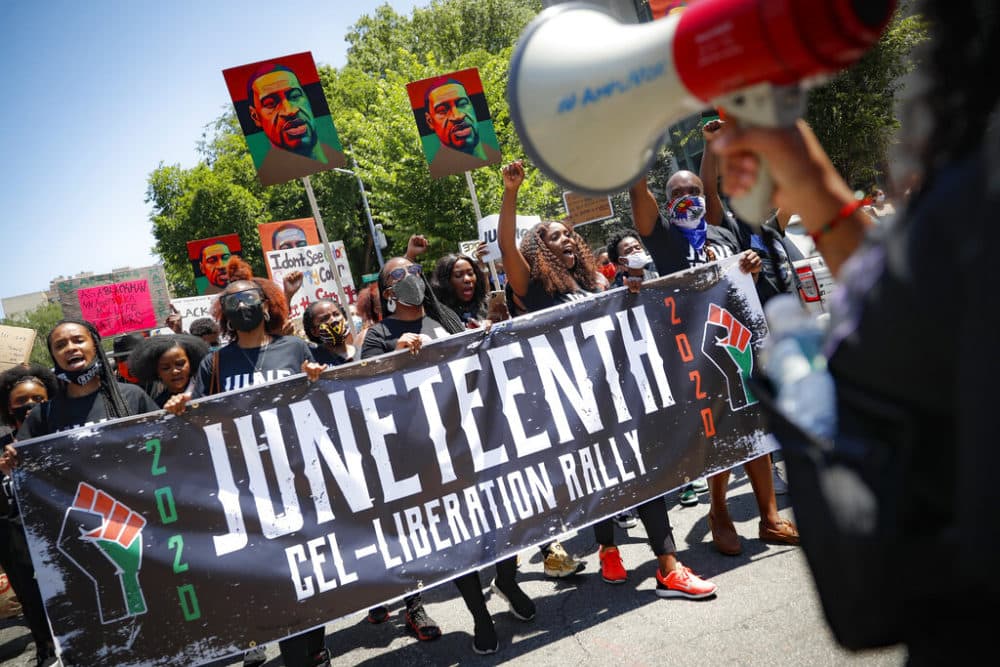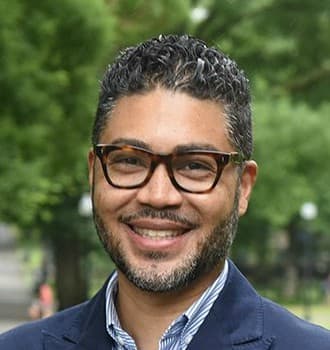Advertisement
Commentary
The Promise Of Juneteenth

It seems almost inconceivable in today’s information environment, but news of Lincoln's original Emancipation Proclamation took nearly three years to reach all the enslaved people across the South. This moment, symbolizing the dawn of a new American Dream, did not occur until June 19, 1865, when Union Gen. Gordon Granger read General Order No. 3, which proclaimed freedom from slavery in Texas, one of the farthest corners of our country at the time.
This day of liberation for enslaved Black people, Juneteenth, marked the first time that Americans, all Americans, could be entitled to the promise of the Declaration of Independence proclaimed almost 90 years before.
A century later, Rev. Martin Luther King Jr. and other civil rights leaders implored President John F. Kennedy to issue a Second Emancipation Proclamation by executive order. King hoped that this Emancipation Proclamation, issued on the centennial of the first one, would legally outlaw segregation. The original Emancipation Proclamation ended slavery in states at war with the Union. King and other leaders hoped that a Second Emancipation Proclamation would end a hundred years of the after-effects of slavery: racial segregation and Jim Crow discrimination.
Juneteenth can belatedly serve as that Second Emancipation Proclamation, holding within it the possibility of a post-pandemic start to a future free from the bonds of racism.
Now, 156 years after the original Juneteenth, on the first federal Juneteenth holiday, we know and understand that racism and its long-lasting consequences have changed us all. The dehumanizing effects of racism place us in a caste system, a hierarchy where people cannot dream of equality. Author Isabel Wilkerson describes this phenomenon as an artificial hierarchy and set of rules that determine respect, standing and access to resources. It places whiteness and proximity to whiteness at the top of a food chain while placing those with darker skin at the bottom. Despite years of progress and proclamations of a post-racial America, today’s “triple pandemic” of COVID-19 and economic and social injustice has illustrated that American society remains hierarchical, exclusionary and doggedly resistant to change.
Juneteenth is a chance to symbolize something else in 2021 and beyond. First, Juneteenth is an opportunity to recognize the contributions that Black people have made to this country, and acknowledge America's dark history of slavery. Second, Juneteenth as a holiday catalyzes new vistas of democratic possibility for the entire country and moves us closer to realizing the promise of the Declaration of Independence for us all. And lastly, Juneteenth can belatedly serve as that Second Emancipation Proclamation, holding within it the possibility of a post-pandemic start to a future free from the bonds of racism. It can unlock the love within us all and help us reclaim the humanity that slavery and racism have taken from us. It can make us all whole — a vehicle to carry the moral, political, religious and federal weight that symbolizes our continued commitment to a new American Dream.
If liberty and justice for all is our true value, Juneteenth is America’s original Independence Day.
Race relations in Boston won't get better unless the public discourse and analysis of history pushes beyond denial, grievance and shame. As we unmask and gather in public with each other, we need policy, research, action and new systems to eliminate and disrupt the racism that became so visible at the height of the three pandemics.
We also need new memorials like "The Embrace", the memorial sculpture honoring Martin Luther King Jr. and Coretta Scott King that will be placed on Boston Common, and new symbols, like those created after September 11 and the Boston Marathon bombing: a new "Boston Strong.” If liberty and justice for all is our true value, Juneteenth is America’s original Independence Day. As Dr. King once said, “We are caught in an inescapable network of mutuality, tied in a single garment of destiny. Whatever affects one directly, affects all indirectly.”
This year will be the first that the country celebrates Juneteenth as a federal holiday, thanks to a bill passed by Congress this week, and signed by President Joe Biden. Let’s hope the imprint of our government is the impetus needed to get us to a place when all people — no matter the color of their skin — can dream of equality.
